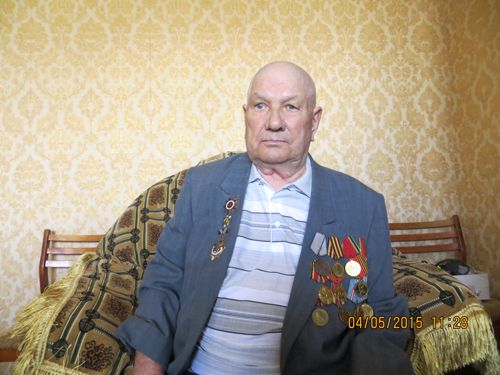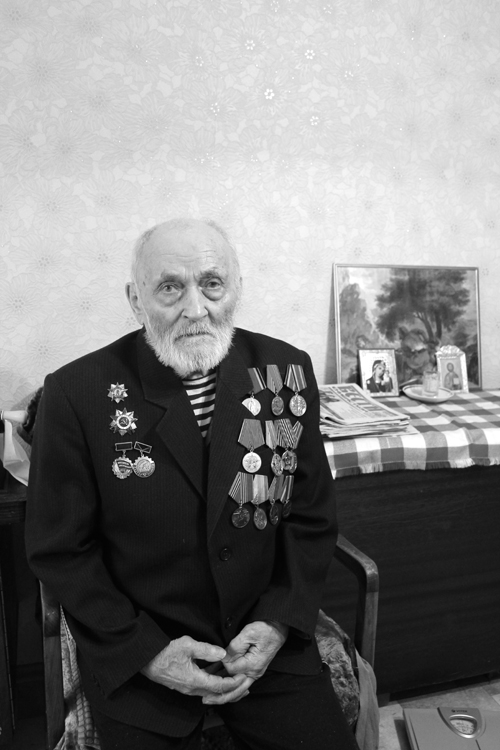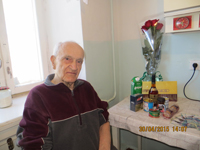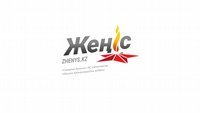As the Motherland is one
06.05.2016
Within the frames of the social and charitable project called Zhenis initiated by JSC Samruk-Kazyna group of companies we devote our today story to the veterans-miners, Great Patriotic war participants. To the people, thanks to the courage and heroism of whom we held out and won in the most awful war.
The son of Orenburg region Khusainov Galimzyan Salimzyanovich was drawn to the combat army in March of 1944, got into the infantry. In two months the infantry-rifleman Khusainov was sent to the 361-st Totsk artillery regiment. In the composition of the First Baltic front he hammered the enemy on the north-western border of the country.

Here is how our veteran recollects those days:
- The battalion chiefs were the first together with the infantry, they were followed by us – the artillerists. In our 9 brigades there were all types of weapon, including the ones made in America (military and technical assistance of the ally). We occupy the firing positions, the battle … the crash of cannonries, fighting, the ground was convulsing… In two hours the battle finishes, we leave the firing positions, we load mine throwers into trucks, we move further. The Germans draw in, we occupy a deliberated territory. One or two days of rest period and an order again: “Arms on guard!...”
The soldier Khusainov met the victory in Lithuania. He continued his service in the Army in the composition of the 28-th artillery division numbered in the Reserve of Chief Command. The division formed at the very end of the war was sent to the most difficult sections of fight with the German invadors.
After the war Galimzyan Salimzyanovich served in Pskov region, then in Leningrad. Upon the graduation of hygiene instructors’ courses, in the rank of the sergeant-major of the medical service – in Estonia. He quit the army in 1950.
The Motherland marked the noble service of the hero with the Award of the Patriotic war of the 2-nd grade, medals For Bravery, For Victory over Germany and other awards. During the post-war years Galimzyan Salimzyanovich worked as Assistant Excavator Operator at the coal mines of Chelyabinsk region. In the 70-ies his family and he moved to Ekibastuz. He worked as a Section Mechanic, Mining Foreman at Bogatyr coal mine. And even upon retirement he continued working. He has a lot of labor awards.
The son of a simple farmer’s family from Smolenshchina Aleksey Demiyanovich Perelyakin was called up to war in 1942.

After the 3-month courses of military training of mortar gunners in the 582-nd training unit in Irkutsk region, among the other young soldiers he was sent to build defense walls along the Argun river. At the beginning of 1943 the infantry regiment was formed from the military units located there.
However, instead of the front line as they had supposed they were sent to tree felling for construction, which was very needed for building defense walls of the Soviet reserve regiment.
In April of 1944 the unit was transferred to the composition of the reserve regiment.
In the victory year – 1945 – in the situation of the special confidentiality the unit was redeployed to the Soviet-Chinese border. There he served in the composition of the 1036th regiment of the 293rd rifle division. There was a war with Japan in front. The regiment moved in direction to Manchuria from Chita to Dauria having overcome the very difficult crossing through the Big Khingan. And then there were the difficult battles with the troops of the Japanese army.
- I remember when combing an area we run into ambush of the Japanese, - Aleksey Demiyanovich recollects the episodes of his military biography. – One company of automatic riflemen was enough to liquidate the ambush. Having come down by the serpentine rode we revealed the enemy depots of ammunition and food in the gorges. After that we continued to move in direction of Khailan town, in the suburbs of which the Japanese were sitting in two fortified bunkers. As it turned out, the Soviet troops, which marched, did not notice the hunkered enemy immediately, and in the meanwhile the enemy started to systematically and cunningly mow down our scarce units left to support the order. We had to neutralize the fire units of the enemy.
And there we were very surprised how, softy speaking, not chummy the Japanese military men behaved themselves in regard to each other on the last days before the capitulation. So, if the white flag on termination of opposition was put out by the ones sitting in the first bunker, then the second bunker combat crew brought them down with the lead fire, and on the other way round - the attempts of the latter to lay down arms caused furious fire of their comrade-in-arms. The Japanese were doing this again and again until they gave up after the agreement between themselves.
In September of 1945 the long-awaited peace came on. Japan signed the pact on capitulation. This is how the Second world war ended. Aleksey Demiyanovich and his fellows were sent to restore the objects of the national economy. However, after a little while he found himself in the hospital - the battle wounds reminded on themselves. In half a year, in August of 1946, Aleksey Demiyanovich was transferred to the reserve, and he went back to his native lands - to Novosibirsk region, then he moved to the Altay region. And already in 1966 - to Ekibastuz. He got employed at the coal mine of Irtyshugol complex of enterprise as an assistant excavator operator, he worked on this position up to his retirement in 1978. For his courageous service during the war years Aleskey Demiyanovich Perelyakin was awarded with the Award of the Patriotic war of the 2-nd grade, medal "For Victory over Japan", the gorget "Participant of the Great Patriotic war", numerous jubilee medals. The veteran also has awards of labor merit: "Winner of the Social Competition", "Machine Operator of Coal Industry".
Only half a year of piece service fell on the share of Vasiliy Konstantinovich But. He accepted baptism on fire among the first ones participating in the defense of the legendary Brest fortress. Vasiliy Konstantinovich was drawn to the color from the village called Uspenka on the very even of the Great Patriotic war. As his daughter Lidiya Vasilievna Bakina said, he never liked to remember on horrors of the first war days. Vasiliy Konstantinovich described everything he had occasions to see and overcome in numerous verses written by him for those years. Only two of their border units remained alive after the traitorous attack of the hateful aggressor. They were shooting a way out of the entrapment days and nights joining the separated and dropping back units. In the course of severe battles Vasiliy Konstantinovich was wounded, sent to the hospital, and then again to the front line. He served in the cavalry troop. He served in the composition of the 115-th regiment of the 75-th division of the 4-th army. After one more serious wound he was transferred to the reserve. He came back to his native village, worked as a school teacher, later as director, agronomist, before his retirement - as head of the children camp at Zhasybay.

For heroism and unequalled courage demonstrated at the front line he was awarded with the award of the Patriotic war of the 1-st grade, order Red Star, medal "For Victory over Germany", he was mentioned with numerous jubilee awards.
He devoted these lines to the Great Victory Day:
In the battle for our Motherland
We gave everything we had.
Fighting even unto death
As the Motherland is one.
Pyotr Vasilievich Koval went to the front line as a 17-year-old boy in December of 1944.

But before that he had the military training at the Urals. Then in the composition of the 930-th artillery regiment of the 1-st Far-Eastern army was redeployed to the Far East, where he participated in the war against the militarist Japan. He met the victory over Japan in the northern Manchuria. Despite the fact that the military actions against Japan continued for one month only the young soldier saw all the toils of war. In 1946 he was transferred to the reserve. For the demonstrated courage and heroism Pyotr Vasilievich Koval was awarded with the Oder of Patriotic war of the 2-nd grade, medal "For Victory over Japan". During the postwar time the veteran gave to the coal industry for over thirty years, he worked at different production sections: as a shunting master, then as an electric locomotive operator .
Kanat ALDABAEV
Photo from the personal archives of the veterans.






